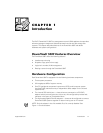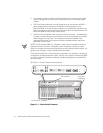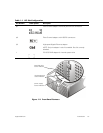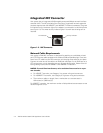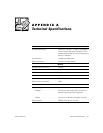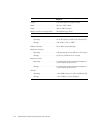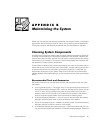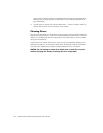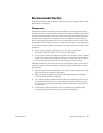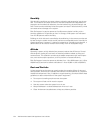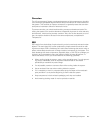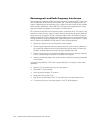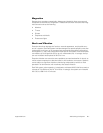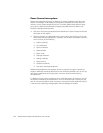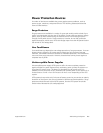
support.dell.com Maintaining the System B-3
(.
This section discusses various environmental factors that can adversely affect system
performance and longevity.
!
Temperature extremes can cause a variety of problems, including premature aging
and failure of chips or mechanical failure of devices. Extreme temperature fluctuations
can cause chips to become loose in their sockets and can cause expansion and con-
traction of disk drive platters, resulting in read or write data errors. When you perform
a low-level format operation on a hard-disk drive, it is important to ensure that the
drive's surrounding temperature is at or near the temperature at which the drive will
be operated. Failure to do so can result in relocation of the tracks on the disk platters.
To minimize the negative effects of temperature on system performance, follow these
guidelines:
Ensure that the system is operated in an environment no colder than
10° Celsius (C) (50° Fahrenheit [F]) or hotter than 35°C (95°F).
Ensure that the system has adequate ventilation. Do not place it within a closed-
in wall unit or on top of cloth material, which can act as insulation. Do not place it
where it will receive direct sunlight, particularly in the afternoon. Do not place it
next to a heat source of any kind, including heating vents during winter.
Adequate ventilation is particularly important at high altitudes. System performance
may not be optimum when the system is operating at high temperatures as well as
high altitudes.
Make sure that all slots and openings on the system remain unobstructed, espe-
cially the fan vent on the back of the system.
Clean the system at regular intervals to avoid any buildup of dust and debris,
which can cause a system to overheat.
If the system has been exposed to abnormally cold temperatures, allow a 2-hour
warm-up period to bring it up to normal operating temperature before turning it
on. Failure to do so may cause damage to internal components, particularly the
hard-disk drive.
If intermittent system failures are noticed, try reseating any socketed chips,
which might have become loose due to temperature fluctuations.



